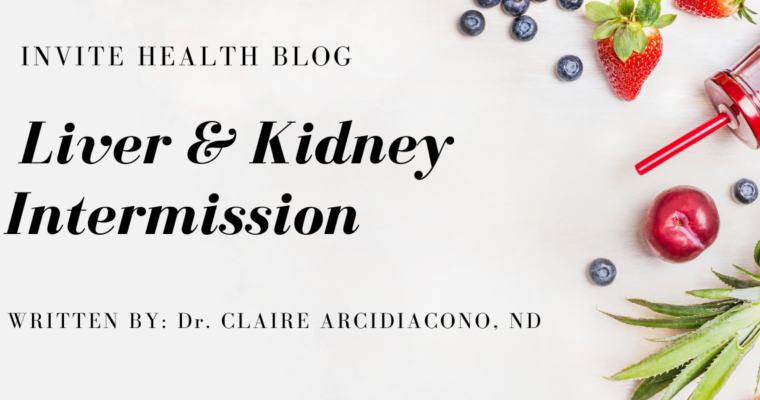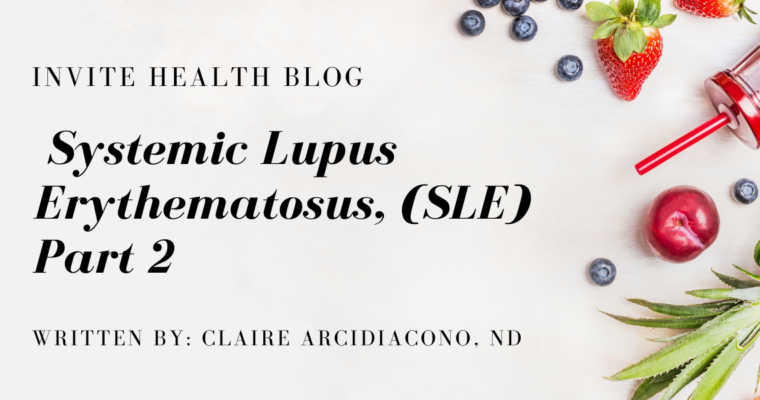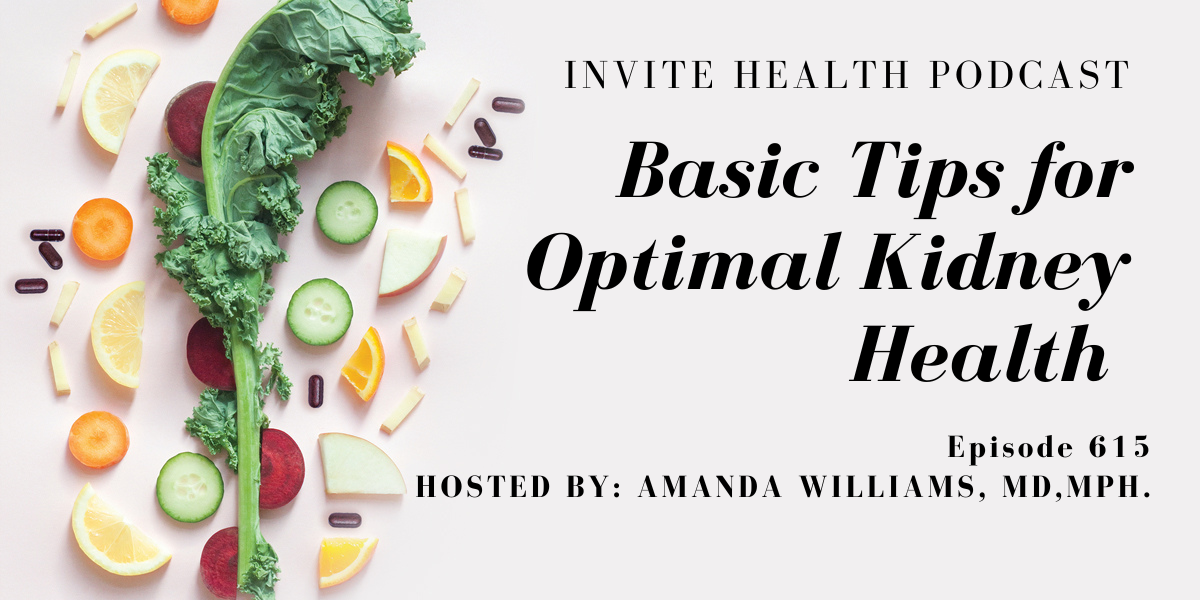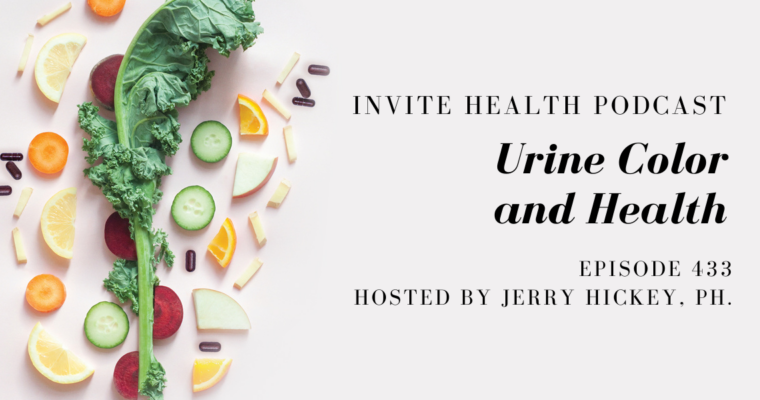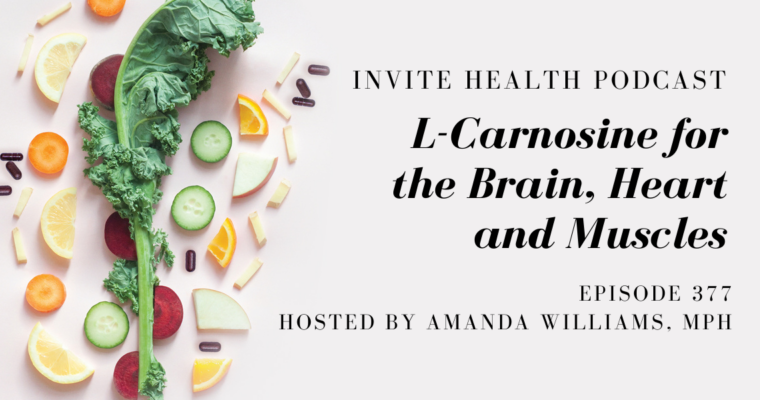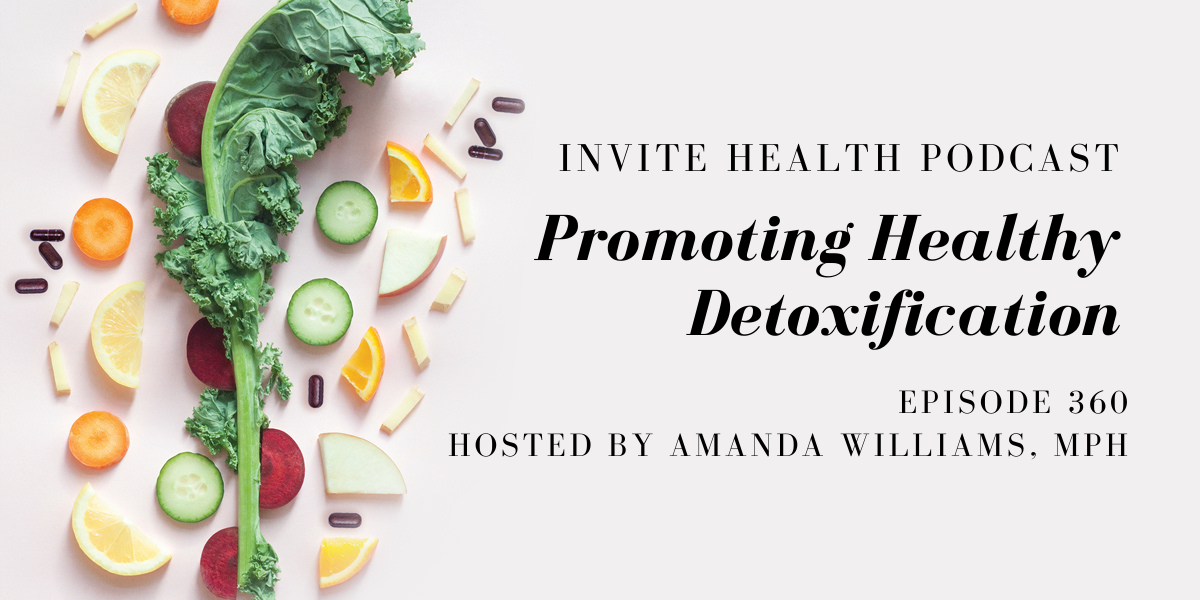Please see below for a complete transcript of this episode.
BASIC TIPS FOR OPTIMAL KIDNEY HEALTH, INVITE HEALTH PODCAST, EPISODE 615
Hosted by Amanda Williams, MD, MPH.

*Intro Music*
InViteⓇ Health Podcast Intro: [00:00:04] Welcome to the InViteⓇ Health Podcast, where our degreed health care professionals are excited to offer you the most important health and wellness information you need to make informed choices about your health. You can learn more about the products discussed in each of these episodes and all that Invite Health has to offer at www.invitehealthcom/podcast. First time customers can use promo code podcast at checkout for an additional 15% off your first purchase. Let’s get started.† [00:00:34]
*Intro Music*
Amanda Williams MD, MPH: [00:00:40] Even if you don’t have a background in medicine or health, you probably have heard that your kidneys are pretty important and indeed they are and unfortunately due to the standard American diet and so many chemical exposures, as well as so many medications that people are taking on a regular basis, the kidneys can really struggle throughout our lives, so I want to talk about some different nutrients and ways that we can support our kidneys as we get older. I am Dr. Amanda Williams, scientific Director at Invite Health, and we know that our kidneys support many critical functions in the body, one of which is filtering out waste products out of the blood, helps to regulate our blood pressure. When we think about the formation of urine and we know that when it comes to chronic kidney disease, there are many factors that can play into this, including the issue with uncontrolled hypertension or high blood pressure throughout your life. We can certainly look at the detrimental effects of glycation of which diabetes is the main driver to that metabolic syndrome, insulin resistance, being obese or overweight, we clearly can see the statistics that by the year 2030, over 50% of Americans will be categorized as obese, not even overweight, but actually obese. We can look at gut dysbiosis and draw that into declining kidney function. So we know that there are different ways that we can assess overall kidney quality. We can look at the glomerular filtration rate, which is known as the GFR,this is a standard test that’s usually run when you go into your doctor’s office. We can look for waste buildup that is detectable in the blood when the kidneys are struggling, that’s in the form of creatinine.† [00:02:33]
[00:02:34] So these are all different ways that we can kind of monitor our kidney function as we get older. Clearly, there are important aspects that our vitamins and minerals play as well as are antioxidants when it comes to maintaining good kidney health throughout our lives. Vitamin D is certainly critical to those, very protective to the kidneys. And we can recognize that when people have chronic kidney disease, they oftentimes will have a co-morbid Vitamin D insufficiency or deficiency. So we can see a steady rise in diabetes and obesity, nonalcoholic fatty liver disease, as well as chronic kidney disease. The incidence of chronic kidney disease continues to go up in this country and we are not seeing any trend in the near future that this is going to shift in the other direction. So what can we do? Well, the more we understand the structure and function of the kidneys and you know, what we can be doing on a daily basis in terms of the foods that we’re eating. Obviously having high antioxidant foods, things that are going to ease inflammation and that workload off of the kidneys would be incredibly beneficial. The best diet would be adherence once again to an anti-inflammatory, Mediterranean style way of eating. I’ve worked with many folks throughout the many years I’ve been doing this, and oftentimes they are unaware of the fact that their kidney function is starting to decline because many doctors just don’t mention that unless it gets to a kind of the danger zone where you can really start to see that the kidneys are failing.† [00:04:21]
[00:04:22] And so this is an unfortunate thing, and for folks who, you know, don’t have a medical background, don’t understand what their blood results are indicating to them. It’s always advantageous to speak to someone who can kind of walk you through what those numbers mean, and understanding that certain things that you’re doing each and every single day can be detrimental to the long term health of the kidneys themselves. We can look at how certain medications, nonsteroidal anti-inflammatory medications, chronic use of those things like ibuprofen, for example, certainly can be problematic, different antibiotics, chemotherapy drugs. But we also cannot overlook a major problem that is occurring that we are being able to draw upon, and that is the overuse of proton pump inhibitors. So the medications that people are commonly prescribed or even taking over-the-counter for acid reflux and heartburn or gastroesophageal reflux disorder. We know that these commonly used medications, including the pain relievers, as I mentioned, as well as those proton pump inhibitors are associated with an upwards of 50% higher risk of the development of chronic kidney disease. So we have to be wise to this. If we’re experiencing GI issues, we can’t simply put that and say, oh, I just have heartburn. But that doesn’t affect my kidneys because we know that it can and it does, especially if you are turning to those different medications. † [00:05:58]
[00:06:00] We can look at how, you know, low levels of Vitamin D, Vitamin B12,certainly can lead to the worsening of kidney function, low levels of magnesium, for example, also very much so linked to, you know, the declining state of health when it comes to our kidneys. So we know that we can do some different things when it comes to our diet. We know that we can incorporate in, high antioxidant fruits and vegetables, high fiber, and of course, we can look at different nutrients that can regulate our blood pressure and to support the proper inflammatory response.† [00:06:40]
BLOOD SUGAR AND KIDNEY SUPPORT – INVITE HEALTH PODCAST, EPISODE 519>>LISTEN NOW!
[00:06:42] If we have elevated homocysteine for example, we want to be able to target that with things such as Methyl B formulation, one cap a day and acetyl cysteine, two caps a day. If we are dealing with high blood pressure, then we want to be looking at products such as the Cardio Hx, or adding in simply just Magnesium glycinate each day would be incredibly advantageous. We can’t forget that our omega three fatty acids are key and critical to proper kidney function, so having the inclusion of fish Oil or Krill oil Advanced would certainly be advantageous. Another area that I oftentimes look at when it comes to declining kidney function is energy depletion and when people’s kidneys aren’t filtering properly and we’re kind of getting this toxic buildup in our system, this can start to drain all of our energy reserves through every single cell in the body. So we can look at a simple amino acid, L-Carnitine and look at how beneficial carnitine is when it comes to kidney function. The majority of carnitine is stored within the kidneys, so if the kidneys themselves are struggling to perform their daily duties and they don’t have adequate carnitine to turn to, to facilitate that energy, then the inclusion of L-carnitine into your daily routine certainly would be something to consider. How much? 500 to 1000 milligrams is generally the sweet spot that we’re looking for.† [00:08:21]
[00:08:23] But we also have to consider the impact of that gut dysbiosis, this is oftentimes where you can correlate in the acid reflux issues, people using the proton pump inhibitors, worsening kidney function. So we always want to address the microbiome, so through the inclusion of Probiotic Hx, this certainly would be a very good addition to a routine. There’s a lot of science out there looking at the impact of L- Carnosine not to be confused with L-Carnitine, but L-Carnosine, which is another amino acid, very important when it comes to the protection of the kidneys from glycation. We can look at Benfotiamine, which is in our Nerve Hx formulation, also very beneficial when it comes to the protection of the kidney from Glycation. What is glycation? Excess sugar that does damage to the structure and function of the kidneys, not just the kidneys, but everything in the body, including your eyes, your vascular system, your brain. So we always want to make sure that we have a supplement on board that’s very targeted towards that regulation of glycation in the body. So there are a lot of different things that we know can be very beneficial when it comes to overall maintaining kidney health as we get older. But we have to always look at the things that are the easiest to to modify, such as our diet, our exercise routine, ways that we can incorporate in healthy foods to optimize our microbiome in, including in Probiotic Hx on a daily basis to support the microbiome, taking nutrients to target inflammation such as fish oil, and Krill oil Advanced.† [00:10:10]
ICYMI: NEW DATA, VITAMIN D & THE IMMUNE SYSTEM. INVITE HEALTH PODCAST, EPISODE 610
[00:10:12] And of course, if we have underlying health conditions such as diabetes, insulin resistance, or high blood pressure. Those we definitely want to make sure that are managed very, very good so that we are not creating a pathway for destruction to the kidneys. So kidney health very complex, but we can try to keep it simple today by thinking of what can I do to make my kidneys happy, well we can adhere to a Mediterranean style way of eating and we can incorporate in all of these wonderful nutrients and don’t overlook just the basics, your vitamin D, magnesium, vitamin E, for example, so even taking the Core multivitamin would be advantageous to just assure that the body is getting good exposure to those basic vitamins and minerals.† [00:10:59]
[00:11:00] So that is all that I have for you for today. I want to thank you so much for tuning in to the InViteⓇ Health Podcast. Remember, you can find all of our episodes for free wherever you listen to podcasts or by visiting, invitehealth.com/podcast. Do make sure that you subscribe and you leave us a review. You can follow us on Facebook, Twitter and Instagram. And we will see you next time for another episode of the InViteⓇ Health Podcast.† [00:11:00]
*Exit Music*


